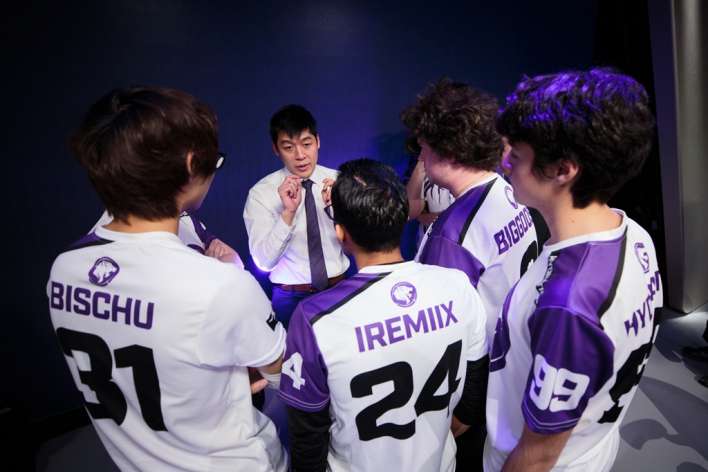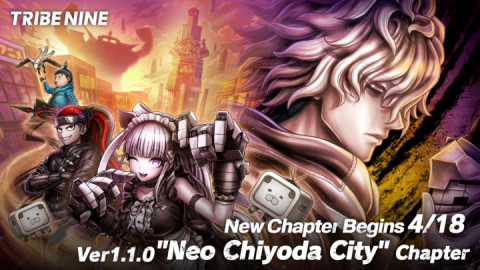
It's the last day Overwatch League stage one. The stadium is packed, over $125,000 is up for grabs and the numerous playoff scenarios have been talked about and discussed to death. It's easy to forget that the league is only a month old, as the league's presence and widespread popularity feels like it has always been a part of competitive Overwatch.
But it hasn't and a lot of the communities original ideas about how the league would unfold turned out to be totally wrong. Dallas Fuel toppled over the weight of their own hype, Seoul Dynasty wasn't as impervious as they appeared and Boston Uprising, the most underhyped team of the league, proved extremely competent.

Going into stage 2, we have a lot more information on each teams power level. However, thanks to numerous reports on roster changes and new players joining the league, even this information is subject to change.
So I'm going to focus on what I know for certain. Here are the three Overwatch League truths I've learned from interviewing pro players, team captains, player managers and everyone in between during stage 1.
1. The majority of players believe individual player skill and mechanics are relatively equal across the board.
All our players say that NA and EU players are just as good as Koreans now. None of our players believe there is a gap at all. It is my opinion too actually, I don’t think there is any gap.
- Andrew Kim, player manager for NYXL.
Personally, I wouldn't place anyone as being either the best or the worst. It is more like we all have different playstyles that each makes us unique. Some players could learn from others-- either being patient or specific mechanics. We are all different.
- George "ShaDowBurn" Gushcha, Philadelphia Fusion.
One of the most common things pro players would tell me is that every player currently in the league is world class. Every Widowmaker is lethal, every Tank player can track ultimates, and every support player is aware of the sneakiest flank routes.
I started to understand this because, as press, I hear a lot of players discussing what went wrong and what went right directly after their match. They are each keenly away of their role on the team, and, when they lose, it is always a matter of team failing to work together or adapt in time. Every player can point out their mistakes, but they rarely if ever attribute a loss to being simply outclassed.
Even the Shanghai Dragons, now infamously ending the season with a 0-10 record, are adamant about their individual player skill not being the problem. How else do you explain UNDEAD's ability to pop off vs. Seoul Dynasty or ShaDowBurn's response after defeating the Dragons during week 3?
"I think people underestimate them very hard. The teams right now are all in very close positions. Even the worst teams can beat the best teams, we are all super close. People should not underestimate Shanghai Dragons."
If the teams are so close, how do you explain NYXL's dominant performance? This question brings me to the next lesson I learned.

2. Communication and teamwork define a teams ability to win.
When the team is feeling extremely frustrated, they barely talk. That is the first consequence of low morale. This causes the synergy and communication to be very bad and, in order to win, you need to be coordinated and communicate constantly.
- Chao "UNDEAD" Fang, Shanghai Dragons
One of the things I was told is that I need to talk more. It's pretty important that I give my team good info because I am in the back line a lot. If I can set up the dive successfully, that can make us win fights. I never really thought about it that way. Before, I would just listen to comms of my teams while just doing whatever.
- Dante "Danteh" Cruz, San Francisco Shock.
This may have come as a surprise to many casual Overwatch observers, but more veteran analyst and players could have seen this coming from a mile away. Individually strong players simply do not predict a teams success and trying to gauge a teams effectiveness based on potent their playmakers are is a surefire way to lose a lot of bets.
Overwatch played at the highest level is overwhelmingly about coordination and communication and, as Dynasty and Fuel both discovered, all the Fleta or EFFECT madness in the world can't overcome a lapse in team cohesion. Teams live and die based on their ability to communicate and stay organized, something that both Muma and LiNkzr of the Houston Outlaws know all about.
After their playoff deciding match vs. Boston Uprising, both players were quick to praise JAKE's leadership and ability to "micro" individual players when things were falling apart. This ability single-handedly propelled his team to victory and has nothing to do with tracking or flick shot skills.

3. Player morale and confidence is paramount.
As a professional gamer, you can't ever feel good about losing. Once you get to this point, you are no longer some amateur that randomly made it. We have all been playing and competing for so long. We have been through so much sh*t.
- Aaron "Bischu" Kim, Los Angeles Gladiators
A huge portion of whether your win is about your mental game. You have to ask, is your mental game on the same level as theirs? When you get to the best of the best, individual skill only matters so much.
- Matthew "Clockwork" Dias. Houston Outlaws
It matters a lot when a team’s players are down on themselves and this lesson was most obvious with regard to the famed DPS flex player, Taimou.
Everyone knows by now that Dallas Fuel didn't live up to the expectations fans set to them, but no one knows it more than Taimou. After each match loss, his Twitter page was filled with shame-filled tweets, each lamenting his team's poor performance and how personal he took each failure:
"It's selfish but I won't be attending any fan interaction today. I can't look at the fans faces when they will say "It was a close game, don't worry we'll always cheer for you." without feeling shameful and crying. That game was 100% my fault. I'm practicing all night."
"I used to be a leader, I used to be feared by everyone. Now I have been mediocre in and out of game. Not someone one should respect. It's hard to be a shade of yourself. Harder than it was being the best. But I will get it back. I will force it if I have to in order to win."
"All that practice for nothing. so f***ing sad at my play.
It's hard to read, especially coming from someone who, previously, was known for a confidence that bordered on cockiness. Thankfully, Fuel decided to hit the gym, focus on player morale and, after a win vs. Shanghai Dragons to get the ball rolling, this happened:

Fuel than proceeded to beat Gladiators 3-1 in their most decisive league victory. Sure, Fuel still has a lot of work to do going into stage 2, but a confident Taimou was the first step.
You can tell the same story about Shanghai Dragons, another team that performed abysmally. My interview with the teams chief coach revealed how things totally outside of the game were causing their player morale to plummet.
"We just arrived in LA for the first time. It is all of the players first time and everything is different. It is a huge difference. The food is different, life is different, and these minor differences have a psychological effect on our players. Everything combined together is proving to have a huge impact and it is a negative impact."
The result? A losing team. The Overwatch League places a tremendous amount of pressure on players, as many of their first jobs just started just a month ago. It's incredibly unlikely that players who are suffering mentality can maintain the focus and productivity training regime the highest level of Overwatch competition demands.
Moving onto stage 2
The top teams from season 1 have a lot in common. They represent a harmony between individual player skill and the ability to work as a team. They represent happy players that, regardless of win or lose, still have high hopes in their ability to win in the long run.
These teams don't rely on one player to catapult them to victory, instead, they work together and play to each other's strengths, adapting on the fly thanks to their ability to communicate quickly and efficiently. In these teams, players don't go silent, losses aren't dwelled on, and to my understanding, life outside of the game is good.
It's been talked about countless times, but the Overwatch League is an endurance run, not a sprint. Moving forward, the teams that are able to consistently take care of their players and remain positive are the ones who will stay together and keep succeeding.
All photos inside the Blizzard Arena stadium taken by Robert Paul for Blizzard Entertainment and subsequently released by Blizzard for publication
-

Warcraft 3 is my one true love and I will challenge anyone to a game of Super Smash Brothers Melee.
Sort by:
Comments :2
-
0

level 1 ZRRumy
1
I would just like to thank you. That was a very well written article, and it made a lot of sense to me. I liked the viewpoint of seeing the different interactions that you were able to see, as well as supporting your claims with quotes and score results. Thank you.
-
0
-





